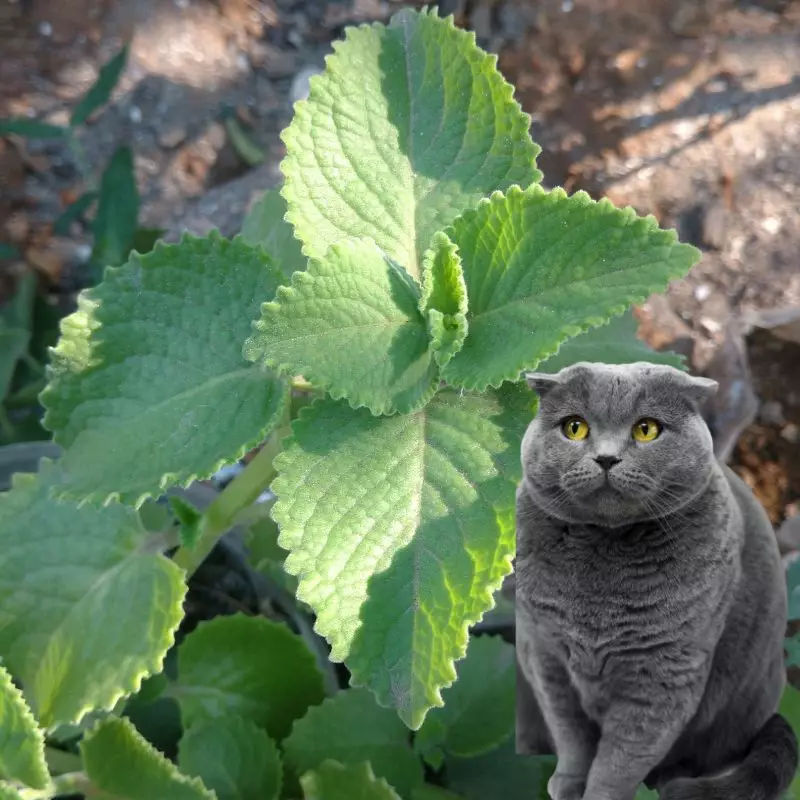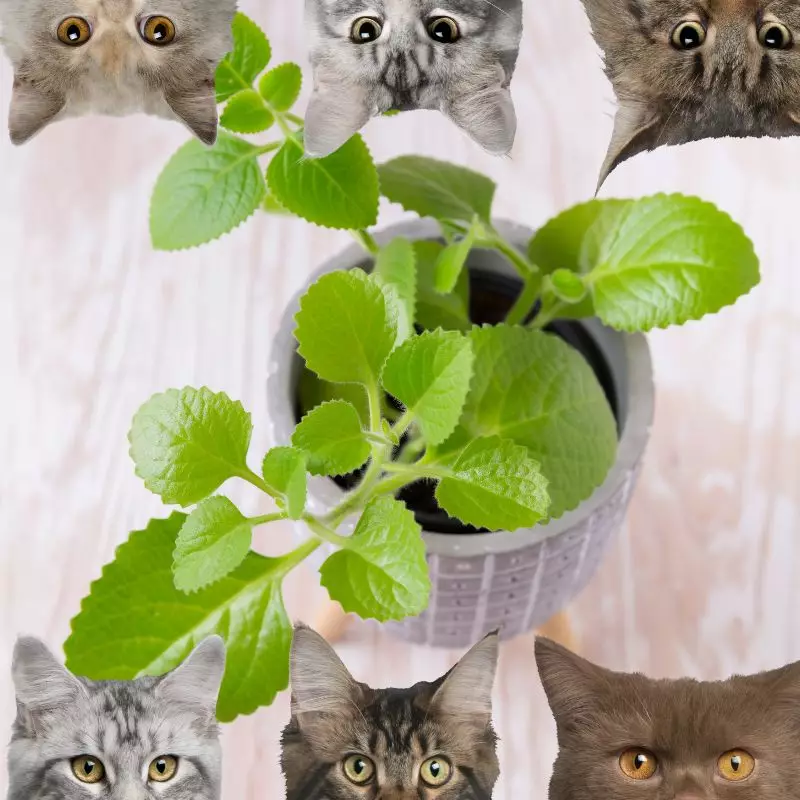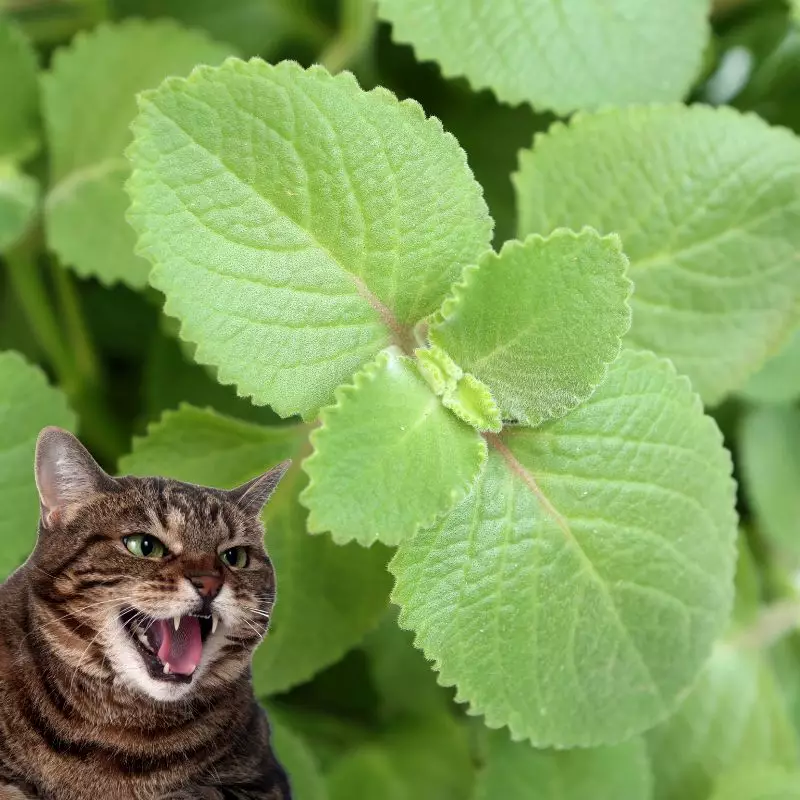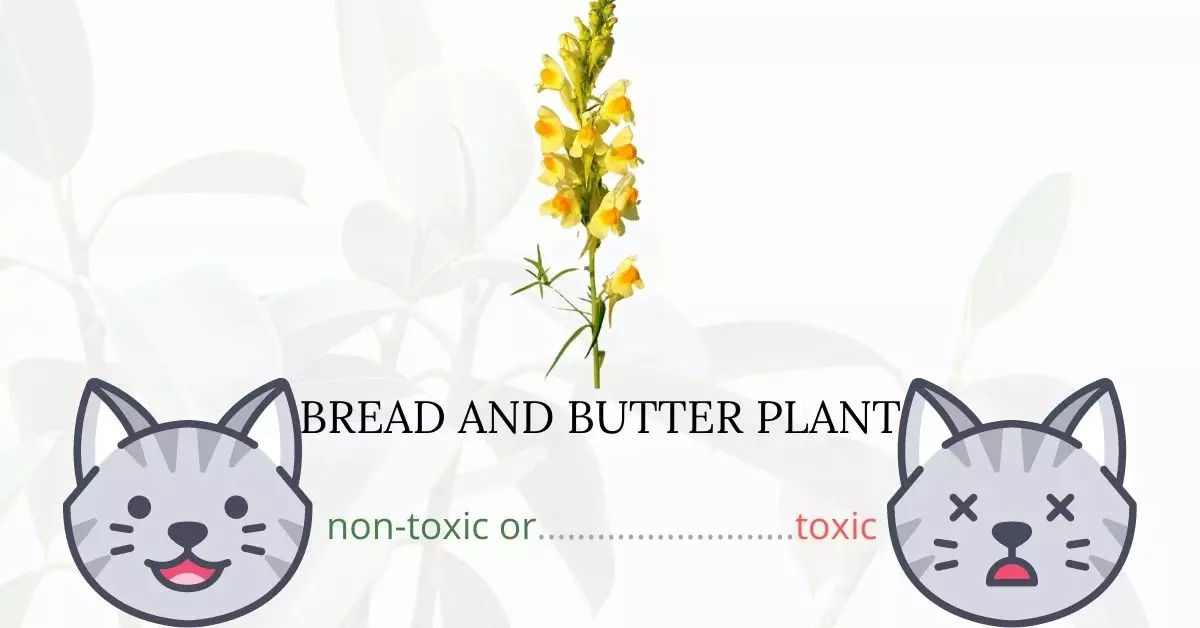The Bread and Butter Plant, scientifically recognized as Indian Borage and also known by names like Spanish Thyme, Coleus, Maratha, Militini, and East Indian Thyme, is indeed toxic to cats. The plant contains essential oils, which include compounds like carvacrol, thymol, and caryophyllene oxide that the feline digestive system cannot effectively metabolize. This inability stems from the fact that cats, being primarily carnivores, lack many of the necessary enzymes to digest certain plant compounds. Consequently, the toxins in the Bread and Butter Plant accumulate in a cat’s system more rapidly than they can be broken down, leading to adverse gastrointestinal reactions.
This article is the result of a collaborative effort with a team of experienced DVMs (doctors of veterinary medicine). Their invaluable input ensures the accuracy and relevance of the information presented here regarding the potential risks of various plants to cats. Moreover, to guarantee our readers the most comprehensive and up-to-date insights, we have diligently researched high-authority sources like the ASPCA and PetMD for every plant discussed, including the Bread and Butter Plant.
Clinical Signs of Bread and Butter Plant Poisoning in Cats

When a cat comes into contact with, inhales, or consumes the Bread and Butter Plant, it can lead to a range of symptoms stemming from the plant’s toxic compounds which the cat’s digestive system cannot metabolize effectively. Here’s a closer look at the clinical signs and their possible causes:
- Vomiting: A cat’s digestive tract struggles to process the essential oils and other toxic compounds present in the plant. This causes irritation to the stomach lining, leading to vomiting as the body’s natural response to expel the harmful substance.
- Diarrhea: The ingestion of the plant can disrupt the normal flora of the intestines and cause inflammation. Diarrhea acts as another way for the body to rapidly eliminate the offending toxins.
- Unusual behavior: The toxins may interfere with a cat’s neurological system, causing disorientation or erratic behavior. This sign indicates that the poisoning might be affecting the cat’s central nervous system.
- Loss of appetite: The gastrointestinal discomfort caused by the toxins can result in a reduced desire to eat. This can be due to nausea, stomach pain, or general malaise brought about by the ingestion of the plant.
- Depression: Exposure to the toxic compounds in the Bread and Butter Plant can affect a cat’s mood and energy levels. The cat may become lethargic, showing less interest in play or interaction, as its body deals with the adverse effects of the plant’s compounds.
If a cat displays any of these symptoms after coming into contact with the Bread and Butter Plant, it’s crucial to seek veterinary attention immediately. Immediate care can mitigate the severity of the reaction and ensure a better outcome for the affected feline.
First Aid and Treatment of Bread and Butter Plant Poisoning in Cats

The veterinarian will either give the cat a medication like a hydrogen peroxide or ipecac to make it vomit, or the cat’s stomach will be pumped via gastric lavage. Remove any residual plant matter from the mouth cavity as well. After a prolonged period of vomiting or diarrhea, intravenous fluid therapy may be used to assist cleanse the toxins out of the cat’s system and hydrating the body. If necessary, oxygen supplementation may be administered to help stabilize the cat. Orally administered activated charcoal can bind the leftover poisons together, allowing them to travel through the intestines without being digested.
Recovery from Bread and Butter Plant Poisoning in Cats

How much of the plant was consumed and how long it was before therapy was offered will impact how well your cat recovers. Poisoning can be deadly in extreme cases. If your cat recovers from the early onset of symptoms, the incident is unlikely to cause any subsequent health problems.
Prevention of Bread and Butter Plant Poisoning in Cats
It is advisable not to grow bread and butter plants if you have cats at home to prevent them from exposure. If you need to grow a bread and butter plant for medicinal purposes, keep your cat inside to minimize inadvertent exposure. Keep your cats cognitively busy and occupied inside your home to reduce the likelihood of them wandering away.
If you love plants but have cats at home, check out these lists:





